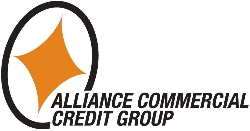Collateral Defined
When applying for a loan, businesses have several different financing options. In almost every circumstance from real-property/equity and asset-based loans, to equipment loans, and even in factoring, the lender will require some sort of collateral. Most basically, collateral is a tangible guarantee that the loan will be repaid. The SBA (Small Business Association) defines secondary collateral as: “an additional form of security which can be used to assure a lender that you have a second source of repayment.”
In other words, the collateral serves as a source of protection for the lender (the bank) in the instance that the borrower (you, the business owner) is unable to follow through with payments under the legal terms of the loan. A simplified example would be leaving your current car keys with the car dealership while you’re out on a test-drive with your new dream convertible. The dealership holds the keys to your current vehicle – something of value (even if it is 10 years old and needs new tires) – in exchange for the keys to the new car, until you return it after your 30 minutes joyride.
Different Types of Collateral
Collateral for loans may come in several different forms.
- Real Property:
- Business Inventory/Accounts Receivable: If the loan is not repaid, the bank may liquidate your inventory and/or assets in order to repay the loan.
- Equipment: Typically, only fair market value is used in the equipment appraisal. Often times the amount that borrowers are able to use as leverage from their equipment and assets comes as a quite a surprise. You may think what you own is worth much more than it can actually be sold for in the current market.
- Cash Savings: “Cash is King.” Just as in almost every other aspect of life, the banks love to loan on cash too. This is easy, straightforward, and secure for banks. Using cash savings or deposits as collateral for loans, most often, will yield the lowest interest rates and most feasible types of loans from lenders.
The most common type of collateral has traditionally been real property, usually an owner-occupied home. The equity you own in your home is used as the security of loan repayment. This means that if you were to default on your loan, the lender would then own your home (foreclosure) and could resell it for the cash necessary to pay back the loan. With the burst of the housing bubble, though, in recent years, small businesses are finding this to be a more and more difficult route to take in that they no longer possess the equity in their home that they once did.
Most Practical Collateral
Every business is different and each loan situation involves individual circumstances. It is certainly best to meet with an expert in business financing to discuss the different loan options and forms of collateral that make the most sense for your business. It is very important to understand the risks in offering both personal and business assets as leverage for a loan, and very worthwhile to explore all types of alternatives so that you find the most practical option for you.

